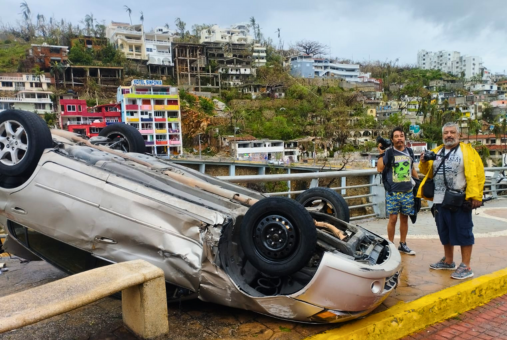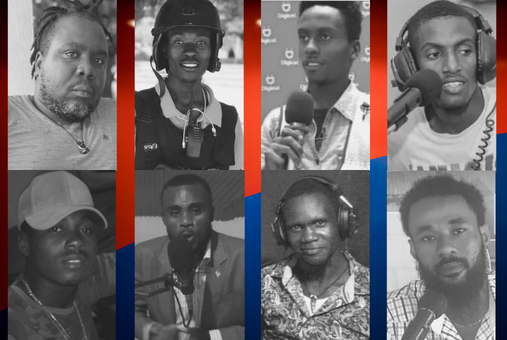
One month after Hurricane Otis, journalists in Acapulco, Mexico, struggle to report in the face of a lack of infrastructure, damaged equipment and personal losses. The cyclone aggravated the already critical situation of journalism in the state of Guerrero, and the devastation threatens the survival of local media and the work of independent reporters.

One journalist murdered, another shot at and another arrested and beaten by the police are the latest victims of a wave of violence against the press in Haiti, a country where eight journalists have been killed so far this year. At the same time, the social-political crisis and poverty are slowly suffocating the Haitian media.
The dean of the Venezuelan press will be able to circulate its printed version for approximately three more weeks, starting this Thursday, Jan. 12. However, for the owners of the newspaper and its more than 180 workers, the uncertainty remains as to whether Ceam will authorize them to buy another batch of newsprint that will allow them to continue producing and publishing their print edition without interruption.
After the implementation of paywalls, Brazilian newspapers had a significant increase in paid digital circulation and audience. From 2014 to 2015, digital subscriptions increased by an average of 27 percent, according to the Instituto Verificador de Comunicação (IVC).
Public media in Latin America have a tradition of serving the government of the day rather than the citizens, and therefore, have gained low ratings and little credibility.
Venezuela’s oldest daily newspaper, El Impulso, is the latest publication to narrowly avert a shutdown amid an ongoing newsprint (paper) shortage that has affected nearly 40 newspapers and magazines across the country over the past year.
Venezuelan newspaper El Universal declared itself in a state of emergency on Monday May 5 due to a lack of newsprint, saying their current inventory would allow them to publish for two more weeks at the most, according to a statement by the paper. El Universal will need to cut down its print edition to two sections of eight pages each, with the rest of the content published online.
Following the closure of a dozen Venezuelan newspapers due to the country’s paper shortage crisis, hundreds of journalists and journalism students marched down the streets of Caracas on Jan. 28 calling the government to sell foreign currencies to print media outlets so they can purchase much-needed newsprint. The journalists said they will continue to protest until the government resolves the situation, newspaper El Nacional reported.
Since 2003, a currency exchange system in Venezuela has prevented businesses from importing certain products without first purchasing foreign currencies provided by the state. In 2012, newsprint, which is not produced in the country, was listed as not being a priority item, forcing newspapers to file requests with the government for foreign currencies in order to import it.
In a public display of derision against private media that has become habitual, Ecuadorian President Rafael Correa again ripped apart the editions of a handful of local newspapers during one of his recent televised national addresses known as "cadenas." This time Correa also warned three publications that they could face sanctions under the country's Communications Law, under which they are required to "publish public interest articles," non-profit Fundamedios reported.
Journalists in Argentina had plenty to say last week about their sour relationship with the country's political leaders -- and the problems that threaten the profession from within.
Internet use is growing rapidly in Latin America, and traditional media groups are exploring digital paid content strategies to try to protect and consolidate their dominant position, especially in the face of competition from new digital-only news organizations.